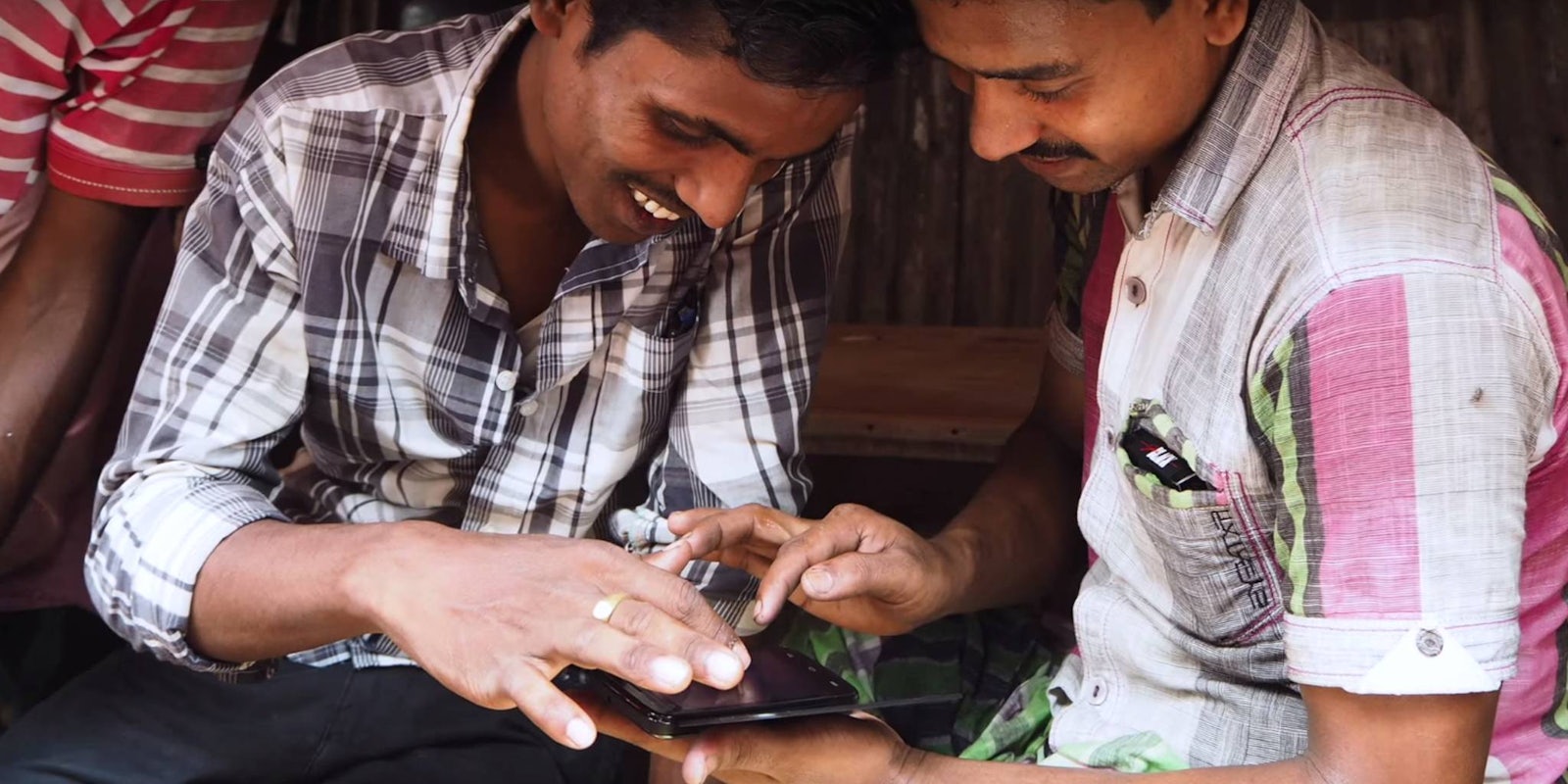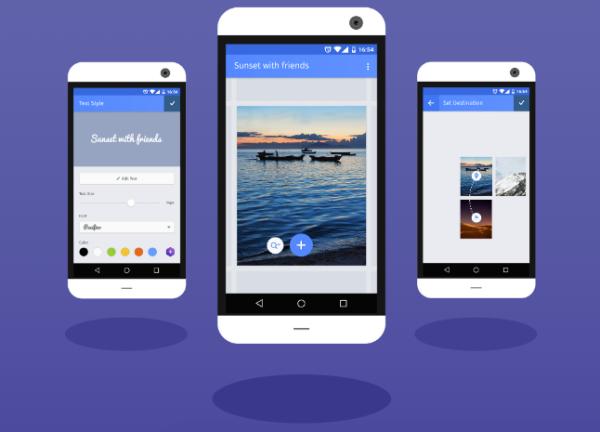While Google and Facebook are trying to bring Internet to the world through balloons and satellites, Mozilla’s ambitions for empowering developing countries with connectivity are happening much closer to the ground. The company recently launched Webmaker, an app that lets people create their own Web pages to share with the world.
Webmaker is designed to give people who’ve only ever experienced the Web by browsing Facebook or news sites on their small mobile devices the ability to create and tell their own stories through a simple app. Built specifically for markets with low or intermittent network connectivity, the app is available in Bengali, Brazilian Portuguese, English and Indonesian and compatible with Android phones running as far back as Android 4.0.
“We like to make sure that as people get online they actually have the skills to be able to understand what’s possible, what they can do, what the boundaries are, particularly the ways they can shape that Internet so it’s built by them and for them,” David Ascher, vice president of product at Mozilla, said in an interview.
It takes just minutes to make content ranging from scrapbooks to love letters, created with the most fundamental aspects of the Web—text, links, and images. Ascher said that even areas with low-literacy can use the app, because it has small amounts of predictable text appearing in the same location. The learning curve is relatively small.
Already people are making surprising and charming Web pages with their mobile devices. In Brazil, one user created an ode to a cat named Panco. An Indonesian user made a guide to prayer. And artists in different countries are uploading photography and surrealism portfolios to showcase their work.
“Web literacy is bigger than digital literacy, which is mostly focused on understanding the basics of hardware and phones,” Ascher said. “Those things are awesome and important but we think of it as a broader set of capabilities and skills that people need to have in order to be fully active and fully engaged citizens of the Web.”
Because the app is optimized for areas with sporadic data connectivity and phones with limited memory management, people only need to be connected to data while downloading the app or sharing it on social media. It’s possible to make and endless amount of Web pages without access to data, which helps people play with these concepts and understand that online content isn’t just for consumption, but it’s possible to tell their own stories, too.
Though it’s designed specifically for mobile, people can view projects on computers, too, and search for projects based on location to discover other contributions from their community. Webmaker gives people the opportunity to produce and curate information outside of the walled gardens established by zero-rating or corporations controlling the Internet.
Facebook’s Internet.org initiative aims to bring Internet to parts of the world that remain disconnected by providing free access to pre-approved Internet services in partnerships with cellular providers in developing nations. In many countries, people first experience the Internet on smartphones, and often this interaction includes Facebook.
In fact, millions of people around the world think Facebook is the Internet. In a survey of 500 people in Indonesia and Nigeria, Quartz found that 11 percent of Facebook users in Indonesia said they didn’t use the Internet, while nine percent of Nigerian Facebook users said the same.
Mozilla wants to let people not only discover, but create an Internet that’s bigger than Facebook.
“Internet.org is a great initiative in that it provides access to some content for people who otherwise wouldn’t be able to get to it,” Ascher said. “It’s somewhat limited in that Facebook and the operators get to decide what’s in the walled garden. I would argue that that’s probably not the people who should be deciding what my Internet is if I’m in that country.”
Mozilla is launching with the support of grassroots volunteers who are on the ground in these countries encouraging people to download an app to share their stories with the world, going beyond what can be contained in a tweet, Instagram post, or Facebook status. It builds a fundamental understanding of different aspects of the Web, including the seemingly endless amount of information that exists beyond the on-ramp Facebook provides.
“The Internet is neither just about consumption or about education or about business,” Ascher said. “It’s about the full potential of the human experience.”
Photo via Mozilla Firefox/YouTube

